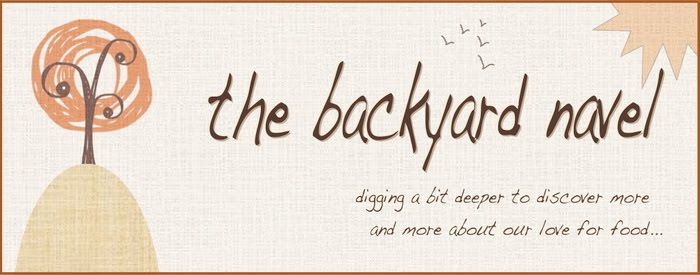so here's a little prelude to today's post:
the opinion section of today's l.a. times ran with a column titled "what goes into chicken," not posed as a question, but rather, an answer. and shouldn't the answer be, other than the food it eats, nothing? shouldn't chicken be chicken?
foster farms, the california chicken giant, defines plumping as:in the past few years, it has become common for chicken producers to inject fresh chicken with saltwater as a way to keep it juicy and flavorful in the hands of indifferent cooks, a process called "enhancing" or "plumping." in some cases, the plumping solution contains a long list of ingredients, and it can make up a fifth or even more of the chicken's weight.
the practice of injecting saltwater, chicken stock, seaweed extract, or some combination thereof into chicken to increase its weight and price, simultaneously increasing sodium content by up to 700%.that's a nice thought, isn't it? i dated a vegetarian in college and at that time, my own logic said, as a chivalrous gesture i guess, i should stop eating red meat and pork. but poultry? sure, not a problem. in fact, i viewed poultry as a substitute. i ate more chicken during those few years than i've probably eaten over the span of my entire life.
(an egg factory, via aleutia's photostream)
with the reading i've done on poultry farming practices, and the little of it i've shared on this blog, putting how much chicken i ate back then to words in the above sentence really sent my stomach churning. and the reading's had such an affect that i really have no desire to eat chicken ever again. drastic and silly maybe, and time will tell if that holds true, but how does a person eat a food that just the thinking of spawns fits of nausea? especially when, as long as the additives in these birds are "natural," the packaging on the birds in the market can say "all natural."
though i will say it was a relief to see the editorial highlight the above-quoted mega chicken farmer attempting to do the right thing, to an extent: the foster farms "say no to plumping" campaign. but i'd love to hear foster farms argue that their chickens aren't genetically modified and manipulated offspring of the factory farm equation like the rest of the corporate poultry farm birds in america.
(foster farms' chicks packed tight before slaughter, via
socially responsible agriculture project's photostream)
double yikes.
i've posed this question before and gotten little response, so i'll try again. does this matter to you? seriously, i want to hear what you have to say. i'm considering an organized effort to attempt a change in farming practices and food regulations in this country, but i really have no gage on whether or not there's enough interest in the general public to support this. does it bother you like it bothers me that we're being lied to when we buy our foods at the market and order off restaurant menus? in my opinion, it's criminal, and i'm curbing how i eat and how i shop, and seeking out more and more literature to gain more knowledge on what goes into our food and where it comes from as a response. but maybe you're still gonna keep on eating the same foods, with little regard to what i'm saying here. that won't hurt my feelings. not one bit. i'd just like to have a better understanding, is all.
happy new year everyone.





Dear friend,
ReplyDeleteI think I'm pretty torn - the more I read your blog and various Michael Pollan books and columns the more I really wonder if I am better off as a vegetarian...but then I go home and make a vegetarian pasta with red sauce for dinner, and I think, a little chicken broth would really punch this up. And while I agree that its awful that products labeled "all natural" are not all natural, I'm not sure how I'd go about finding something that really is all natural. So, I guess until I can easily tell what product is better quality than another, I will probably keep doing what I'm doing and only eat meat in moderation, when it will exponentially improve my meal.
Love,
Erika
happy new year to you too! It's hard to focus on just one of the things that is messed-up about the egg and chicken industry because there are so many it seems. Since you are focusing on the "plumping" topic, here's my 2 cents. I believe that chickens absorb a certain amount of water during processing from the chilling process. Since the core temp of the chix has to be brought below 40 F, the chickens are slaughtered and dumped into gigantic vats of chilled water. During this little bath they may become contaminated with whatever happens to wash off of them. How much water, if any, is abosorbed, I don't know. But I do know this--an alternate method of chilling chickens is called "air-chilling." During air-chilling, the birds are slaughtered and then pass through a chiller that blasts them with chilled air bringing their core temp down rapidly. Can air-chilled chicken still be contaminated if it's air-chilled? Yes. Why? I don't know. But! I have never seen air-chilled chicken that has had any water added to it. I discovered all of this about ten years ago when I discovered the "Smart Chicken" brand at my local Dominicks and researched it. It is a very delicious chicken--they offer a free-range version as well. Dominick's stopped carrying after a while because...nobody buyed it (except for me I think). It was twice as expensive as commodity--just for the air-chilled, not the free-range--that was even more expensive. On the subject of plumping commodity chicken. Here's one way to look at it. Have you ever brined your chicken? What's the difference then?, the industry might ask you. They've already gone ahead and added that extra moisture and seasoning so that you don't have to. After all, nobody likes dried out chicken. And what's so bad, they may argue, about using real sea salt or seaweed extract, all healthy ingredients. Hope this helps you on your journey.
ReplyDeleteart.
sorry this is so delayed, but I completely agree with you. Unfortunately, it's so hard to know what you even want to eat because of the label confusion (i.e. how they can write "all natural" if the stuff they inject is natural). How does one go about finding food suitable for ingestion? I have never eaten much red meat, and over the past few years have mostly weaned off chicken and turkey too (save for chicken in salads i may order for lunch every now and again). I eat mostly vegetables and fish (i wish more of the fish was wild though) and various soy products and dairy for my protein. but then dairy is hard to really monitor as well, considering it's similar circumstances with the cows and the hormones and whatnot, and sure you can get organic, but that doesnt mean the cows are treated any more humanely, plus then it's travelling further typically and they contributes to global warming. And of course soy is processed, and is contributing to deforestation, then there is the whole hormone aspect and how much is too much, and omg i'm getting exhausted just thinking about it all. So i return to my original point of what the heck can i eat??? I'd love to have my own little garden - but living in LA that's not really going to happen, and still leaves the problem of protein - i've never been a fan of beans. So basically my answer is yes, i agree, there should be more transparency in food.
ReplyDelete